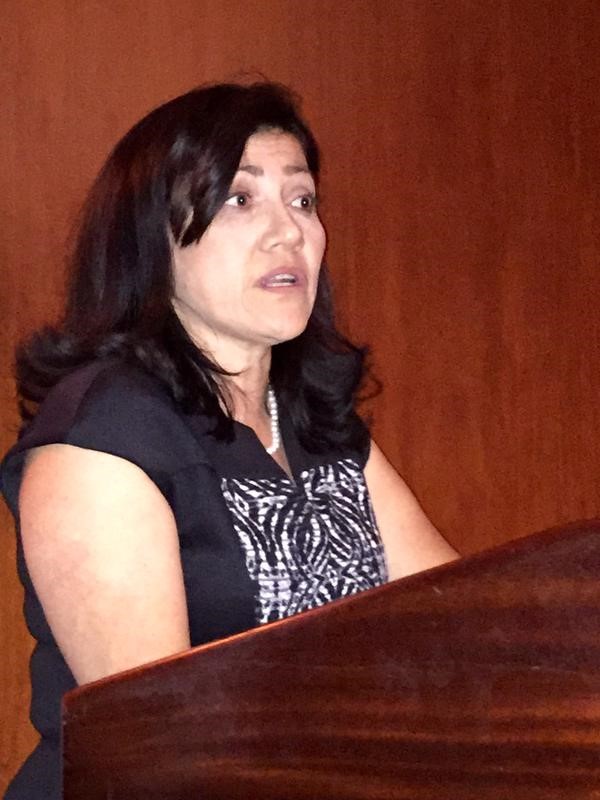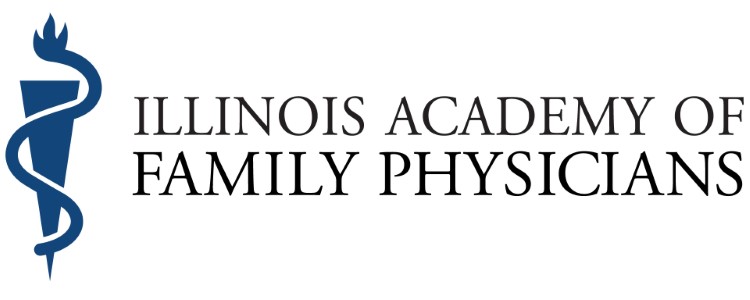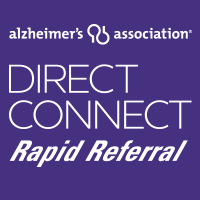Elba M. Villavincencio, MD - 2015 IAFP Family Physician of the Year
 In her own words In her own words
Below is the speech delivered by Dr. Villavincencio at the IAFP Awards Banquet on Friday, October 9.
I got my MD degree in Ecuador. I loved my clinical and surgical rotations, and Anesthesia was what best connected both areas for me. After many years practicing, I moved to Colombia for my spouse’s job promotion, but in order to continue with my specialty, I had to first work one year as a primary care physician in rural areas. My assignment ended up being a small medical office in the outskirts of the capital, which doesn’t sound too bad until you find out that nobody else wants to be there.
Rumors had it that nobody lasted more than 3 months there. The level of crime, poverty and violence scared even the local physicians, but I had no choice. If I stayed there six months, I would become eligible to move to a safer location, so I started working there despite my fears.
Every day a special shuttle picked up and dropped off the medical team to and from the office. "Do not even think about wandering around" we were strongly advised. Violence, drug trafficking, cartel-backed militant groups, poverty and serious health conditions were part of the daily life of that population. Through my daily interactions, I started getting to know all the families and their stories. Some of them began inviting me to their homes for dinner as a gesture of gratitude for my services. I cared of them regardless of the fate they were dealt when they were born there.
It turned out my instinct was right, thankfully. Soon after, I was walking freely along the dusty roads of the neighborhood, escorted by my patients, and protected by the reputation I had cultivated. I ended up working there for two years, and to this day I still remember those faces, their stories, and their lives full of hope.
Years after, life brought me to US.
When I arrived in New York, my English was very basic. Still is. I had to raise 3 kids, learn the language, prepare and study for the USMLE in a language that was not mine, and … keep smiling.
Ms. Moody, my youngest daughter’s first grade teacher, used to send 2 pages of the same homework, one for me and one for my daughter. My daughter was the one getting the A+.
I felt embarrassed and ashamed during school meetings. When my children were sick, they were the ones translating to me. I could not speak, somewhat I understood, but I wanted to be involved. I was a doctor, I wanted to know. How sad and how hard was that?
I always remember that part of my life when I care for immigrant families. I felt the same fear, the shame, the frustration. I understand them and I try to make them comfortable as possible. I see and I enjoy their smile when I switch from English to Spanish, or “spanglish” whatever make them feel better. Changes and challenges are difficult and painful. I have been in those shoes, and I know how tight they can be.
When I moved to the US, I had a rough time deciding whether to go back or not to Anesthesia, but in my heart, filled with my experiences from Colombia, and the ones in US, moved me easily to Family Medicine. I still remember the day I took that fateful train N in New York. I took a deep breath and said: Brooklyn, here I go!
The first month of my residency I was assigned to inpatient service. NYU Lutheran being a trauma hospital is a very busy one. One of my patients, let’s call him Mr. Smith, was a very sick old gentleman. He had all the possible chronic conditions and complications that someone can have. I was very diligently chasing cardiologist, pulmonologists, infectious disease specialist, nephrologists. We all tried very hard. That was a nice teamwork, I thought.
Mr. Smith coded several times, few times ended up in ICU even with a broken ribs. His condition was deteriorating and he kept saying between his gasps that he does not want to sign DNR, DNI, so we keep trying.
One night I saw him, he was very bad, barely was able to open his eyes, and I sat near him. He told me his story: he was old and alone, his proxies died, and when he went to the nursing home he met a lady. When he left for the hospital he promised her that he will be back. That is why he was still trying, he did not want to live, but he did not want to die without seen her again.
I run to the nurse station and ask to put me in contact with the nurse at the nursing home. I ask her to contact the lady, our screen in Skype showed the face of a fragile old one. She told him, that she understood, and she was ok to letting him go. She was ready. They were able to say how much they loved each other. They were able to say good bye. At that time, Mr. Smith’s room had all the nurses at the 5C pavilion and the residents on call. We all were crying, the staff at the nursing home was crying too. Mr. Smith signed his DNR and DNI, and surrounded by us was able to go in peace. That was the first time that I saw him smiling. He was not a grumpy man, he was just sad.
Now we were a team I thought.
Sometimes we pretend to be the great team, but forget the main player: our patient. I remember Patch Adams movie: “ if we are going to treat a disease, then let’s treat one of the worst diseases of all: indifference… when you treat a disease sometimes you win or lose, but when you treat a patient, you always win.“
I am honored to be the family physician of the year. I am blessed with my family: My husband and my kids that keep up with my late nights, my closing chart times, and on call weekends. They are always there and they are my motivation. I am blessed with my patients, my colleagues, especially with Dr. Deeba Massood who has been some sort of guardian angel in my practice. I am thankful with NorthShore, the institution that trusts me and allows me to succeed under its umbrella and share with me the basic principle: better life and better care for our patients.
|

 In her own words
In her own words

